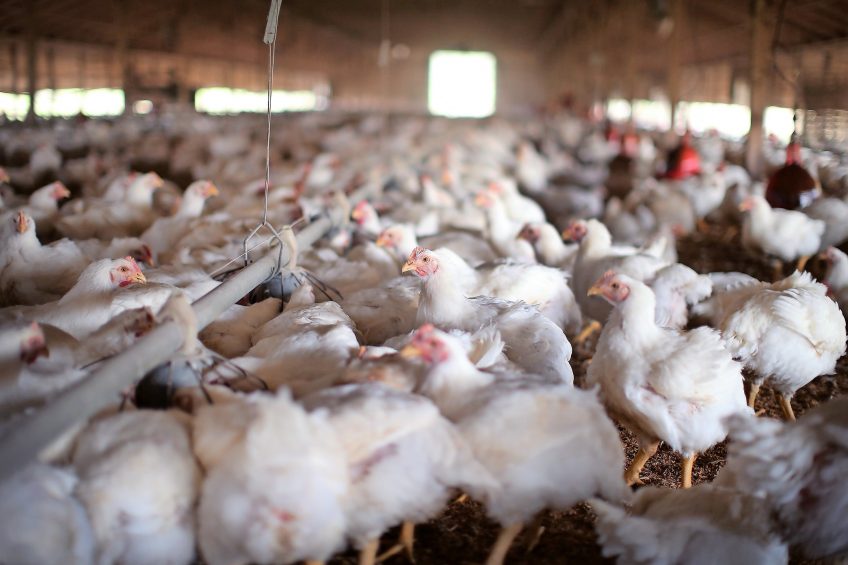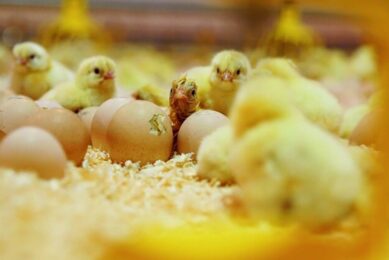US broiler farmers fight chicken cartel

American broiler farmers are in the midst of a lawsuit against large meat processors, Tyson Foods being one. A ‘chicken cartel’ allegedly kept payment to farmers artificially low. The big question is: On which side is president Donald Trump?
The United States’ largest meat processors are colluding. This is a claim made by 5 poultry farmers in a lawsuit against Tyson Foods, Purdue, Pilgrim’s Pride and Koch Foods. The charge: processors make secret deals involving low compensations to farmers. And the farmers, who by now have terminated their businesses, allegedly worked like ‘slaves, on the verge of bankruptcy’ for the ‘chicken cartel’.
Moreover, the 4 agribusinesses are accused of having agreed to never accept a poultry farmer as a supplier, if he previously left one of the other processors. Because the meat giants dominate more than half of the US$ 90 billion (€ 84.33 billion) chicken meat market, the agreements – if proven – would have financially benefited the cartel immensely. The American farmers demand compensation.
Based on regulations in the Sherman Antitrust Act, the 5 farmers ask the judge to establish the truth about the illegal agreements between the meat companies. Their annual salary amounted to between $ 12,000 to $ 40,000 (€ 11,248 – € 37,495), earned by working 12 to 14 hour days. “In the meantime, integrations such as Pilgrim’s Pride and Tyson rake in profits exceeding US$ 1 and $ 3.9 billion,” the 5 complain.
The poultry farmers are disgruntled about the fact that as far as they are concerned, there was never a balanced relation between them and the integrations. The meat processors persuaded the farmers to invest in large poultry houses, mostly with their homes and farms as collateral. After that, they came with demand upon demand on housing or environmental standards. Failure to meet these demands invariably resulted in lower compensation for the farmers and subsequently in problems with paying their debts.
Of the 4 accused: Tyson responds
Out of the 4 accused integrations, only Tyson officially responded. “We want our contracted farmers to be successful and do not consult our competition about how much our farmers should be paid,” a spokesperson stated. Last week it became public that the American financial markets authority launched an investigation into Tyson’s impermissible pricing practices. The news had some impact on Tyson’s stocks on Wall Street.
Waiting for president Trump’s next move
Whether or not the judge declares the case admissible depends on president Donald Trump’s position. The latest legislative amendments, submitted by former Secretary of Agriculture Tom Vilsack under the Obama registration, are still at Trump’s White House desk. Trump has frozen all of these amendments. In the coming weeks he will establish which of them will end up in the bin and which he will embrace. One of them is of direct interest to individual poultry farmers.
Amendment needed to strengthen poultry farmer’s position
Secretary Vilsack tried to strengthen the individual farmer’s position. Because up until now, an American farmer who felt he had been treated unfairly by his buyer or another agribusiness could only start a lawsuit if he could prove that the buyer’s conduct was harmful to the entire sector. An amendment to the Farmer Fair Practice Rules, on which Trump now needs to decide, erases this extra demand. A farmer only needs to prove that he himself has been disadvantaged.

The case of poultry farmer Alton Terry
This can make a lot of difference. Take the case of Alton Terry from Tennessee. He contractually delivered broilers to Tyson Foods. The more pounds, the higher the compensation. However, Terry complained that after he joined the critical Tennessee Poultry Growers Association Tyson started to get imprecise when weighing his broilers. When Terry brought a lawsuit against Tyson, the processor terminated his contract.
Terry’s problem was not that he did not have proof of Tyson treating him poorly. He was powerless because he was unable to prove that the billion dollar enterprise’s behaviour was detrimental to the whole sector. Terry appealed, lost and was sentenced to paying the $ 27,000 legal fees. He went bankrupt. This was 7 years ago.
The imbalance of power between farmer and integrator
This imbalance, or injustice, should disappear, secretary Vilsack deemed. However, the association of chicken meat processors, the National Chicken Council (NCC), screamed blue murder. “This provokes a tidal wave of senseless lawsuits,” NCC spokesman Tom Super complained. Moreover, he denies that the integrations’ rules are unfair. “The system is performance-oriented. It rewards farmers who invest, work hardest and deliver the healthiest chickens.”
Eyes on Trump administration
The reactions of farmers’ organisations are quite the opposite. Zippy Duvall, chairman of the American Farm Bureau, is a poultry farmer in Georgia. This amendment “will better protect individual farmers against unfair treatment,” he says. Roger Johnson, Duvall’s counterpart in the smaller National Farmers Union, expects more transparency in the market because of the proposal. “Both producers and consumers will benefit from increased competition and a more transparent production process,” Johnson says.
Again, all eyes are on Trump. The real estate tycoon has risen to power thanks to the support of both groups: many large agribusinesses supported Trump, as did many common farmers, among them, poultry farmers. But Trump needs to make a choice. Is he closer to the large corporate world? Or to the individual entrepreneur? Former poultry farmer Terry: “I think that everyone who voted for Trump thought: ‘Here we have someone who will rise against the establishment’.” There will be considerable disappointment when he denies farmers this chance.
Columnist, Alan Guebert is convinced that the amendment is necessary to give individual farmers more control. Because the current demand, proving to be a disadvantage for the entire sector, is an enormous obstacle. “It is as if a high school quarterback defeats the Dallas Cowboys in the Super Bowl. This will never happen as long as there is no level playing field.”
Join 31,000+ subscribers
Subscribe to our newsletter to stay updated about all the need-to-know content in the poultry sector, three times a week. Beheer
Beheer








 WP Admin
WP Admin  Bewerk bericht
Bewerk bericht